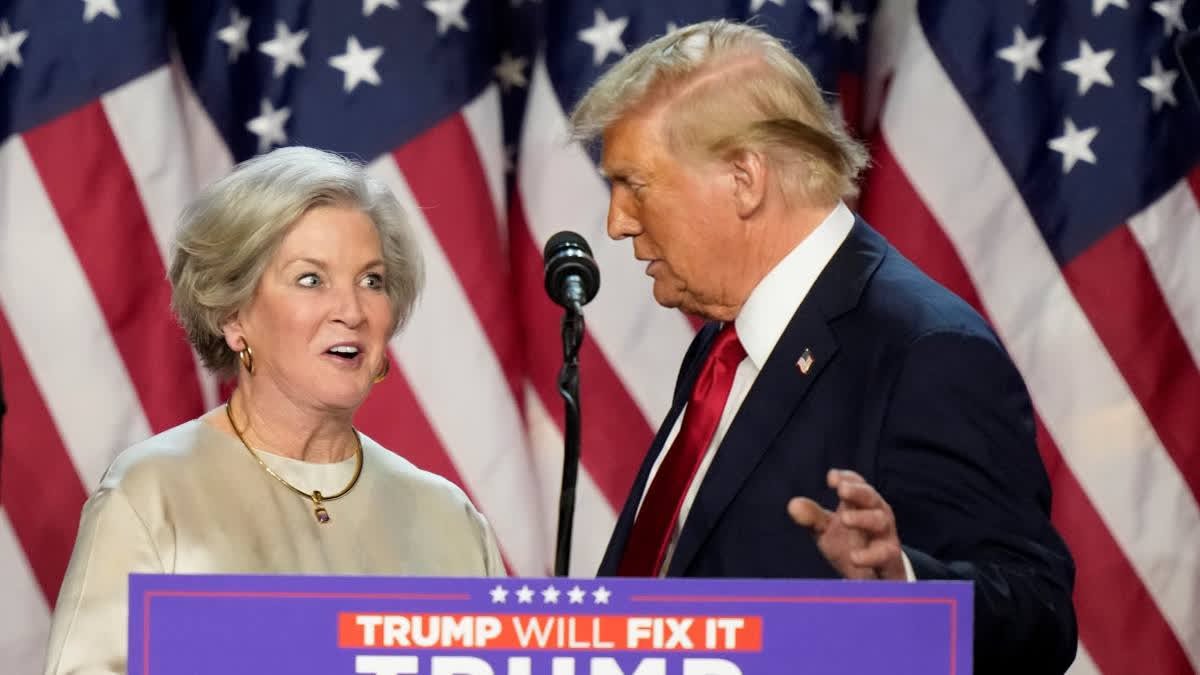Washington: President-elect Donald Trump has named Susie Wiles, the defacto manager of his victorious campaign, as his White House chief of staff, the first woman to hold the influential role.
Wiles is widely credited within and outside Trump's inner circle for running what was, by far, his most disciplined and well-executed campaign, and was seen as the leading contender for the position. She largely avoided the spotlight, even refusing to take the mic to speak as Trump celebrated his victory early Wednesday morning. She resisted the formal title of campaign manager, avoiding becoming a target, given Trump's history of cycling through people in that role.
Wiles' hire is Trump's first major decision as president-elect and one that could be a defining test of his incoming administration, as he must quickly build the team that will help run the massive federal government. Wiles doesn't bring much federal government experience to the role, but has a close relationship with the president-elect.
On the campaign, Wiles was able to do what few others have been able to: help control Trump's impulses — not by chiding him or lecturing, but by earning his respect and showing him that he was better off when he followed her advice than flouting it.
Eight years ago, Trump tossed the careful planning of his transition team and instead hired a motley assortment of campaign aides, family members and Republican insiders who spent the better part of his first year in office engaged in infighting that dominated news coverage of the new administration. It was what many experts consider a foundational mistake that hamstrung a president who was new to Washington and government upon his swearing in.
Trump went through four chiefs of staff — including one who served in an acting capacity for a year — during his first administration, part of a record-setting personnel churn. Many top aides were cast out by Trump in his first term, who resented being made to feel managed or condescended to, while others got caught up in ideological spats within the factionalized West Wing.
Trump aides see hope that Wiles' selection marks a sign that the president-elect is aiming to build a more cohesive team, though one that will almost certainly remain less conventional than his Democratic or Republican predecessors.
Trump, who promised in 2016 to hire "only the best people" has since repeatedly said that he believes the biggest mistake of his first term was hiring the wrong people. He was new to Washington then, he has said, and didn't know any better. But now, Trump said, he knows the "best people" and those to avoid for roles in his administration.
"Susie is tough, smart, innovative, and is universally admired and respected. Susie will continue to work tirelessly to Make America Great Again," Trump said in a statement. "It is a well-deserved honor to have Susie as the first-ever female Chief of Staff in United States history. I have no doubt that she will make our country proud."
Successful chiefs of staff serve as the president's confidant, help execute a president's agenda and balance competing political and policy priorities. They also tend to serve as a gatekeeper, helping determine whom the president spends his time with and whom he speaks to — an effort Trump chafed under inside the White House.
The chief of staff is "absolutely critical to an effective White House," said Chris Whipple, whose book "The Gatekeepers" details how the White House chief of staff role shapes and defines a presidency. "At the end of the day the most important thing is telling the president what he doesn't want to hear."
"On the plus side, she's shown that she can manage Trump, that she works with him and can sometimes tell him hard truths, and that's really important," said Whipple. "On the minus side, she really has no White House experience and hasn't really worked in Washington in 40 years. And that's a real disadvantage."
